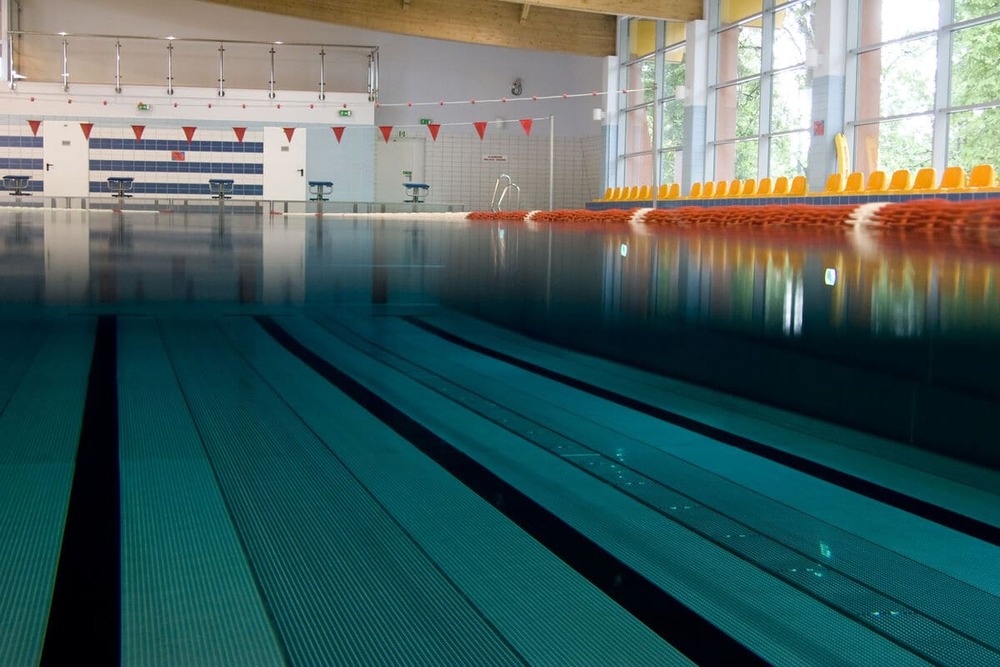The energy consumption of commercial swimming pools represents a significant operational cost for facility managers, often accounting for up to 30% of total utility expenses. Modern pool facilities constantly search for innovative approaches to reduce these costs while maintaining optimal conditions for users. A revolutionary solution has emerged in recent years: repurposing waste heat from data centers through a specialized heat recovery system. This approach not only heats pool water efficiently but also provides ambient heating and supplies hot water for other facility needs.
The concept leverages the substantial heat generated by data processing equipment that would otherwise be wasted. By implementing a computational boiler-based heat recovery system, pool operators can tap into this overlooked energy resource. The system’s dual functionality—providing both computational services and heat generation—creates a unique value proposition for commercial pool facilities seeking sustainable energy solutions.
Dive deeper with the eBook
The computational boiler: technological foundations
A computational boiler functions similar to a conventional computer but with a crucial difference—it’s specifically designed to capture and use the heat generated during operation. When computers process data, they inevitably produce heat as a byproduct of electrical resistance in circuits. While traditional data centers expend significant energy to remove this heat, computational boilers are engineered to efficiently harvest energy and repurpose it for heating applications.
Unlike conventional computers, which waste the energy they consume in the form of heat, computer boilers achieve remarkable efficiency by recovering more than 90% of the energy consumed by processors. This is possible through advanced thermal management systems and direct integration with water heating circuits. The recovered heat is transferred directly to the water used in swimming pools, creating an efficient closed-loop system.
Dual functionality of the system
The primary innovation of a computational boiler-based heat recovery system lies in its dual-purpose design. During operation, it simultaneously provides data processing services and generates hot water—creating two distinct value streams from a single energy input.
The computational boiler can be configured to prioritize either function based on facility needs. During peak swimming seasons, the system might emphasize heat production to meet higher thermal demands. Meanwhile, during lower-demand periods, it can allocate more resources to valuable computational tasks without compromising basic heating requirements.

Specific applications in aquatic facilities
The versatility of a computational boiler heat recovery system makes it suitable for various heating applications within commercial swimming facilities. The most direct application is pool water heating, where the system can maintain optimal temperatures year-round with significantly reduced energy inputs.
Beyond pool water heating, the system effectively serves multiple thermal needs:
- Ambient heating for indoor environments, maintaining comfortable air temperatures
- Domestic hot water supply for showers, cleaning, and other facility requirements
- Climate control for adjacent spaces such as changing rooms and offices
- Specialized temperature control for spa and wellness spaces
The system demonstrates remarkable adaptability across different facility types, from municipal public pools to exclusive hotel and resort pool facilities. A properly sized computational boiler can address both pool heating and guest accommodation needs simultaneously, reducing the requirement for separate heating systems and streamlining facility operations.
Implementation in new and existing facilities
Implementing a computational boiler heat recovery system requires thoughtful planning and technical assessment. For new pools, the system can be incorporated into the initial design phase, potentially reducing the size requirements for conventional heating systems and optimizing the overall energy infrastructure. The ideal implementation involves dedicated space for the computational equipment with appropriate ventilation, electrical supply, and direct integration with the primary water heating circuits.
For existing facilities, retrofit installations must consider:
- Available space for computational equipment installation
- Existing heating system configurations and integration points
- Electrical infrastructure capacity and potential upgrade requirements
- Network connectivity quality and reliability for computational services
- Water circuit modifications to optimize heat transfer efficiency
The multidisciplinary nature of the project demands careful orchestration of different professional teams to ensure both the computational and aquatic design aspects function optimally.

Economic benefits for pool operators
The economic case for computational boiler heat recovery system implementation is compelling for commercial pool operators. The primary financial benefit comes from substantial reductions in energy costs for pool heating—often representing savings of 50-70% compared to conventional electric heating systems. These operational savings accumulate rapidly, particularly in facilities with extended operating hours or year-round operation.
Beyond energy savings, the system creates an entirely new revenue stream through computational services:
- Computing capacity can be rented to cloud service providers
- Processing power can be allocated to blockchain operations or AI training
- Specialized computational tasks can be contracted with research institutions
- Computational resources can be directed toward the facility’s own operational needs
This unique dual-income model—cost savings plus revenue generation—fundamentally transforms the economics of pool operation.
Environmental impact and sustainability
The environmental benefits of a computational boiler heat recovery system extend far beyond the facility boundaries. By repurposing waste heat that would otherwise require energy to remove, the system creates a dual environmental benefit—reducing energy consumption for both cooling (at the data center level) and heating (at the pool facility). This synergistic effect results in remarkable carbon emission reductions, often exceeding 60% compared to conventional pool heating methods.
The system contributes to sustainability goals through multiple mechanisms:
- Dramatic reduction in primary energy consumption for pool heating
- Minimized carbon footprint through efficient energy utilization
- Decreased dependence on fossil fuel-based heating systems
- Extended equipment lifespan through optimized operational conditions
Many hospitality brands and municipal facilities have adopted the technology specifically to align with their carbon reduction initiatives and green construction certifications. The system provides a concrete, measurable impact that can be clearly communicated to stakeholders and the community.

Conclusions about heat recovery system
The computational boiler heat recovery system represents a transformative approach to commercial pool heating that aligns perfectly with modern sustainability goals and economic pressures. By repurposing waste heat from data processing activities, this technology creates a virtuous cycle where computational operations directly support pool heating requirements. This integration delivers exceptional energy efficiency while generating additional revenue streams—a compelling combination for forward-thinking pool operators.
As energy costs continue rising and environmental considerations gain prominence, computational boiler technology will likely see accelerated adoption across the commercial pool sector. The most successful implementations will be those that carefully balance the technical requirements of both computational and heating functions, creating systems that deliver optimal performance metrics in both domains. For pool professionals, understanding this technology represents not just a technical advantage but a competitive advantage in a market increasingly focused on operational efficiency and environmental responsibility.
Frequently asked questions
What is a heat recovery system?
A heat recovery system is a technology designed to capture thermal energy that would otherwise be wasted and repurpose it for beneficial use. In the context of commercial swimming pools, it specifically refers to equipment that captures heat from sources such as data center operations, HVAC systems, or industrial processes and transfers that energy to pool water.
Are heat recovery systems worth it?
Yes, heat recovery systems typically deliver compelling return on investment for commercial pool operators. With energy savings of 50-70% compared to conventional heating methods, most installations achieve payback periods of 2-4 years. When using computational boiler technology, the economics become even more favorable with the additional revenue stream from computational services.
How does the heat recovery system work?
A computational boiler heat recovery system works by combining data processing with thermal energy capture. Computer processors generate heat during operation. The computational boiler captures this heat through a specialized thermal interface that transfers the energy directly to a water circuit. This heated water then flows through heat exchangers connected to the pool’s water circulation system, warming the pool water efficiently.
